Meet the Midwives: What It Means to Be Critical in Every Crisis
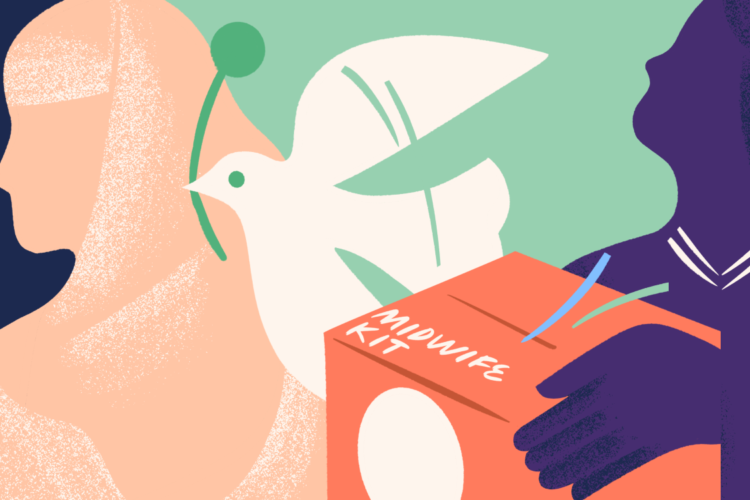
Each year, International Day of the Midwife (IDM) offers the global community an opportunity to reflect on the essential contributions midwives make. This year’s theme, Midwives: Critical in Every Crisis, highlights their vital role when disasters, conflicts and displacement disrupt lives. As health systems break down, midwives often become the only health providers communities can access, safeguarding sexual, reproductive, maternal, newborn and adolescent health (SRMNAH). They offer lifesaving services while upholding dignity and protecting rights in the most challenging circumstances.
We sometimes forget that in emergencies, SRMNAH needs not only persist, they often worsen. Women, girls and gender diverse people face heightened risks, including complications from pregnancy, sexual violence and limited access to essential care. Midwives step up—providing comprehensive support from antenatal and postnatal care to safe births, breastfeeding, contraception and comprehensive abortion care. Despite often facing unsafe conditions, limited resources and emotional strain, they continue to offer care, connection, and hope when it matters most.
During our 2025 IDM event, six midwives who have worked with crisis-affected communities shared powerful stories from their work in crisis settings. Their testimonies reflect the realities many midwives face while providing care in these challenging circumstances, and also bring light and hope through the dedication they show each day.
Advocating for Maternal Justice During Displacement
Ximena Rojas García, a midwife from Mexico, has spent more than 14 years supporting women in out-of-hospital births. Her career reflects a deep commitment to social justice and maternal rights. After years of working in rural Mexican communities alongside traditional midwives, she began providing care for migrants at the US-Mexico border when she saw hundreds of people in need. Volunteering with only her midwifery bag at first, her work expanded quickly in response to overwhelming demand. Ximena has cared for displaced people from Haiti, Congo, and other Central American countries—many of whom faced language barriers, racism, and obstetric violence in healthcare systems. Her NGO, Partería y Medicinas Ancestrales, offers free midwifery services to vulnerable people on the move — including asylum seekers, refugees, deportees, displaced people, and those living in severe poverty.
“Maternal justice is at the heart of social justice,”
Ximena says. She advocates fiercely for informed consent, respectful care, and birth registration for newborns left legally invisible in crisis settings.

Standing with Survivors of Violence and Displacement
Nina Söder is a Danish midwife whose passion for supporting survivors of sexual and gender-based violence led her to crisis settings worldwide. Through her work with Médecins Sans Frontières (MSF) in Lesvos, Greece, Nina managed sexual and reproductive health (SRH) activities at a clinic serving women from conflict zones like Afghanistan and Sierra Leone.
Her patients were often survivors of rape and trafficking, facing trauma while navigating unsafe and overcrowded camps. Nina became their lifeline, offering sexually transmitted infection (STI) care, family planning and emotional support.
“Being a midwife in crisis is not just a job — it is an act of solidarity.”
At times the only midwife on shift, she faced long waiting lists and the emotional toll of listening to harrowing testimonies. Yet she persisted, creating safe spaces where survivors could regain agency and dignity. “Carrying a pregnancy born from violence can be incredibly painful. My role was to create a space where women could reclaim control over their bodies and futures.”
For Nina, crisis midwifery transcends childbirth. She advocates for ensuring midwives are able to practise to their full scope, with the space, recognition and equipment needed to offer services beyond birth — ensuring that even during displacement and trauma, women receive respectful, holistic care.
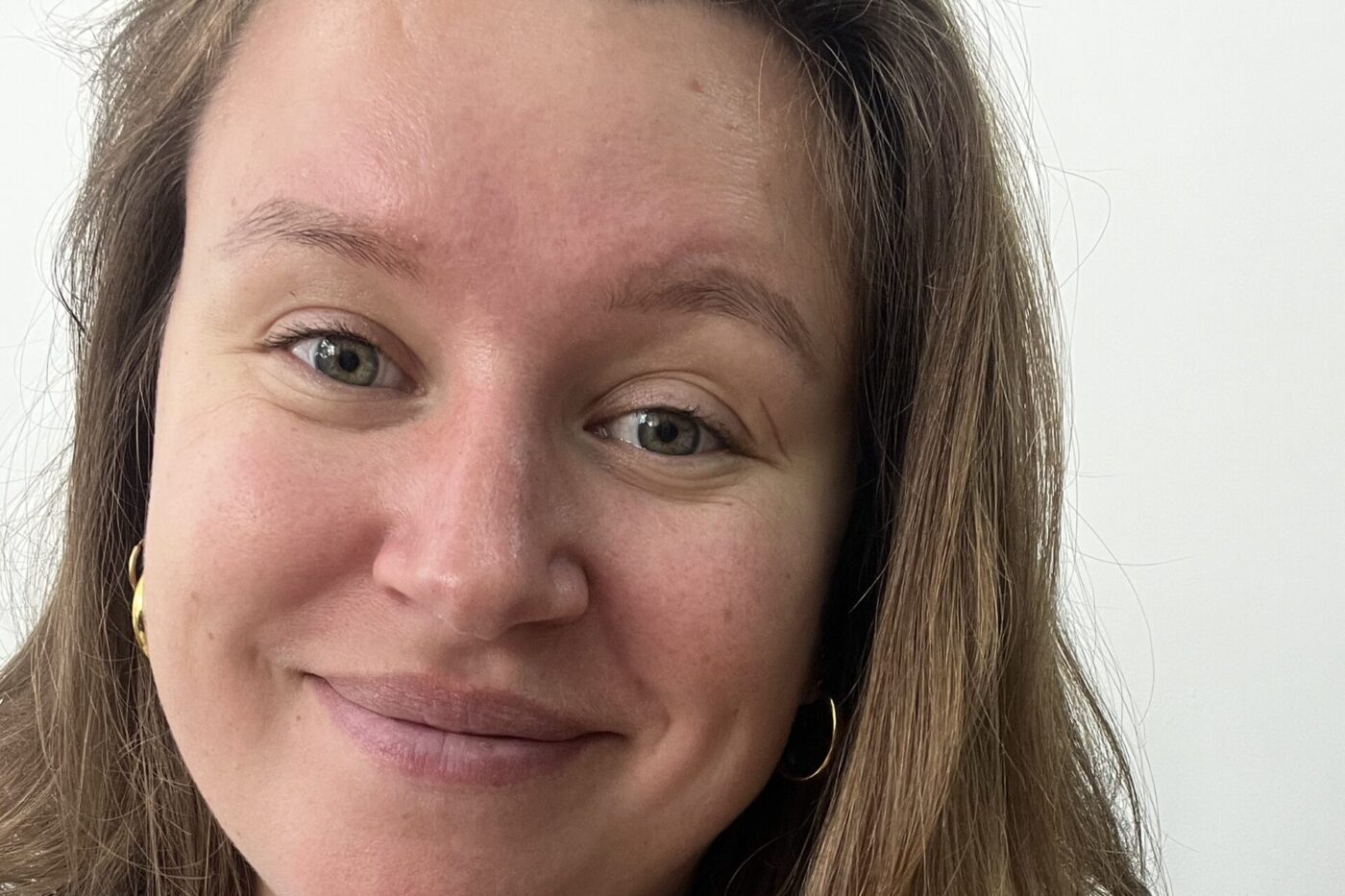
Delivering Calm and Care in Conflict Zones
Bivir Claude Binyuy is a midwife working in a mobile clinic in crisis-affected Bamenda, Cameroon. For the past five years, he has provided essential care for mothers in conflict zones, often risking his life to reach women in labour.
His responsibilities span antenatal care, labour and birth, vaccinations and community outreach. Working in dangerous and resource-scarce conditions, Claude faces insecurity, shortages and emotional strain daily. Yet his dedication never wavers. “Midwifery is not just a job — it is an act of courage, compassion and deep commitment,” he shared during IDM.
A powerful story he often tells reflects his resilience. One night, during heavy gunfire, he walked alone to assist a woman in labour in an inaccessible village and found himself surrounded by armed men. “We used a torchlight to safely supported the mother to birth her baby… the moment the baby cried, the tension died down. That night I left courageous, but I was shivering inside.” This moment, he says, reminded him why midwives are essential, especially in crises.
Claude dreams of a future where midwives are respected, well-equipped and recognised as essential frontline health workers. Above all, he wants the world to know:
“Midwives are lifelines. In places where health systems collapse, we bring more than care, we also bring courage and hope.”
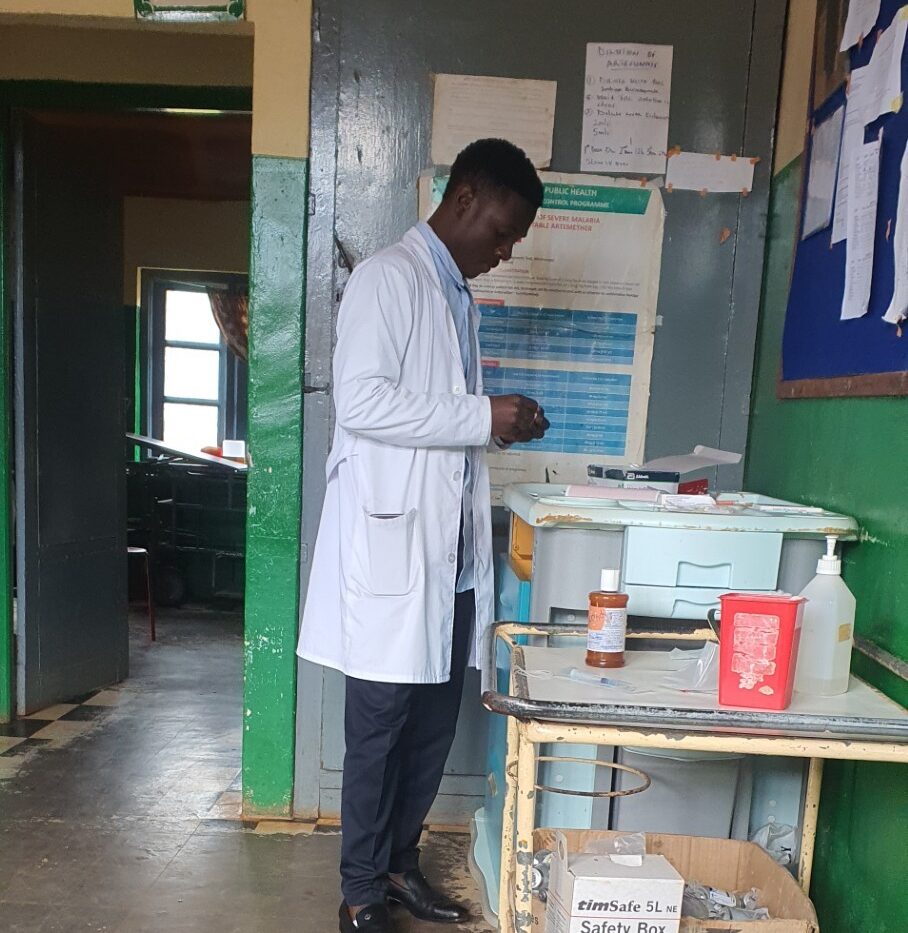
Lifesaving Care Through Displacement and Disaster
Roksana Parvin, a midwife supervisor in Cox’s Bazaar, Bangladesh, plays a pivotal role in the world’s largest refugee response. Since 2021, she has supported the Rohingya community, offering maternal and child healthcare, coaching fellow midwives, and leading emergency responses during crises such as floods and fires.
Roksana manages care for women with complex needs and contributes to case reviews following maternal deaths to strengthen care and prevent future losses. Roksana lists many challenges — from insecuritydangerous conditions, resource shortages and cultural barriers to high rates of complicated home births and difficult referrals — yet she remains unwavering in her commitment. “
The challenges in our context are severe… maternal mortality remains high. Every life saved fuels my commitment to empower women through education and support.”
Her decision to become a midwife was deeply personal. After losing her sibling during childbirth, she chose this path to help prevent others from experiencing similar pain. Today, she has supported hundreds of both safe and complicated births while mentoring other midwives in lifesaving techniques.
Roksana’s hope is that midwives are fully recognised as essential, particularly in crisis settings. “Midwives working in humanitarian settings take extra effort to provide quality care to save lives… We are a beacon of hope to women, children and girls.” Her long-term goal is to see midwives in leadership positions and ensure sustainable, government-supported midwifery roles in Bangladesh.
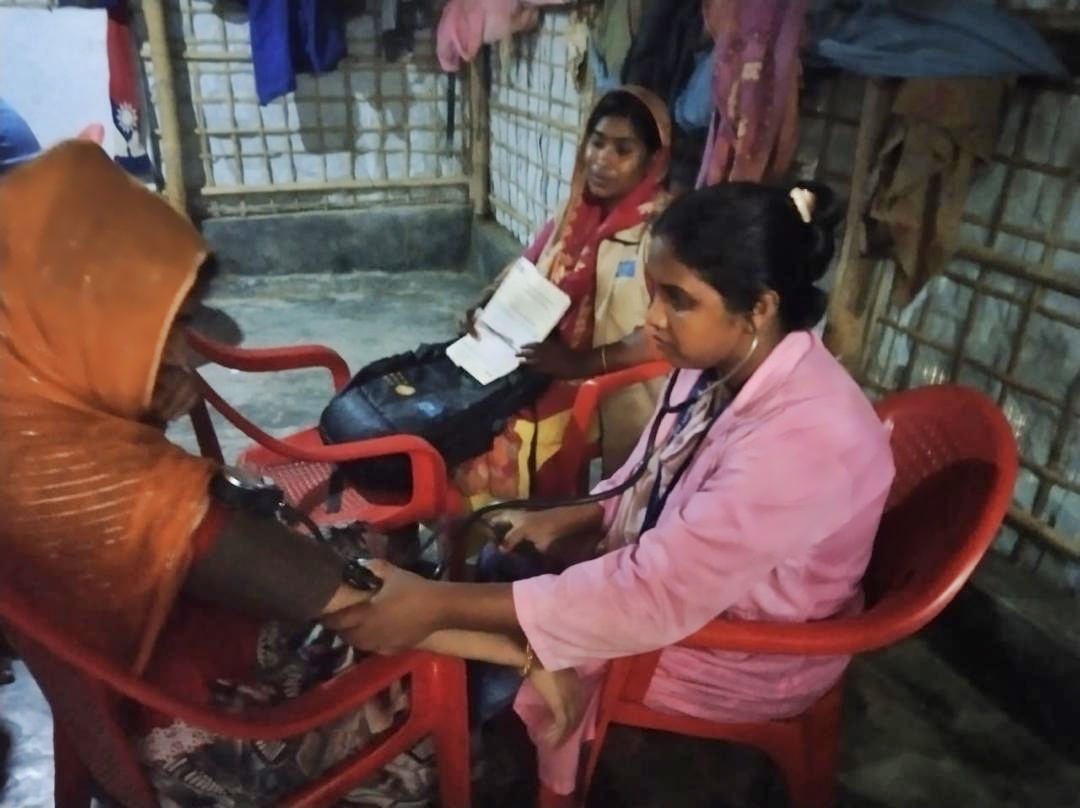
Compassion and Care in the Hardest Places
Lisa Peberdy is a midwifery lecturer at the University of Queensland with immense experience in humanitarian settings. Over her 28-year career, she has worked in challenging environments across East Timor, Papua New Guinea, Bhutan and refugee camps in Greece.
She recalls her first mission in East Timor, where she provided care to 45,000 internally displaced people without electricity or running water. “We had nothing but our hands, hearts and determination — every action mattered,” Lisa shared. More recently, in Greek refugee camps, she supported women fleeing conflict and violence in Africa, Afghanistan and Iraq.
“In these crises, women and children suffer the most, which makes midwives indispensable,” Lisa said during IDM.
Whether working with limited resources or navigating cultural and language barriers, she has always placed empathy and connection at the forefront.
“A smile, a hug, and genuine kindness are universally understood… Our care may be the first respect or compassion they have received in years.”
Her vision is simple yet profound: that midwifery be fully recognised as a strong, essential profession — one that uplifts women even in extreme hardship. Lisa is committed to passing on her knowledge and inspiring student midwives to respond to crises with compassion.
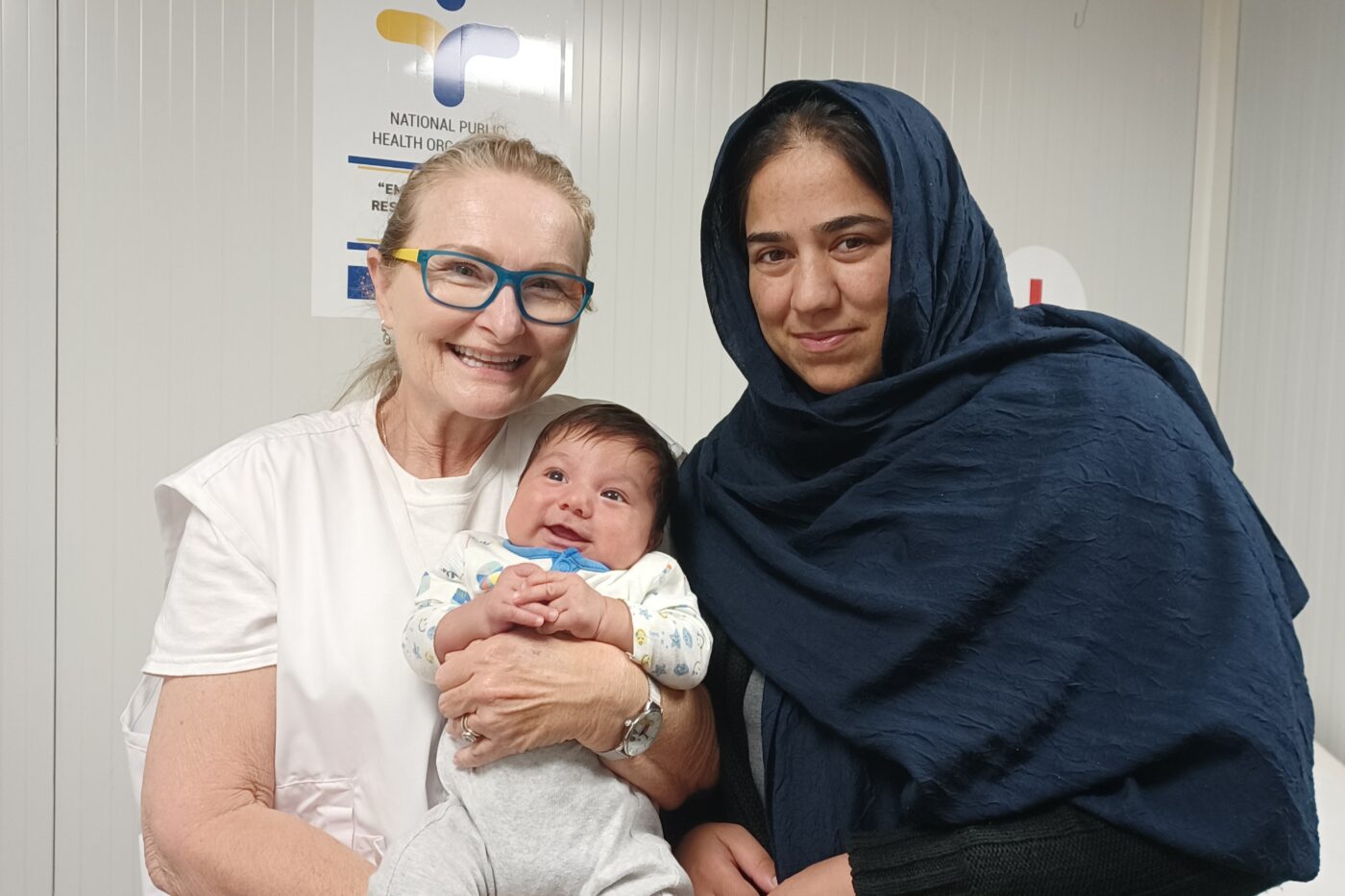
Midwifery as Resistance in Fractured Health Systems
Jeanna Deswert, a midwife working with the Syrian American Medical Society and Global Midwife Response, has worked in some of the world’s most fragile and fractured health settings, including Lebanon’s refugee camps. In these environments, where services are scarce and choice is often limited, she sees midwifery as much more than clinical care — it is an act of resistance.
“I was drawn to this work by a deep conviction that midwifery is not just clinical — it is political, cultural, and humanitarian,” she explains. When systems fail, midwives provide “continuity, safety, and advocacy amid chaos.”
Originally trained in political science, Jeanna decided to become a midwife after witnessing the Syrian conflict and realising the urgent need for skilled care in crisis. She has worked with displaced Palestinian and Syrian women facing statelessness, unsafe contraception, and limited access to care.
“In such environments, where choice and consent are often luxuries, midwives offer protection, information, and connection.”
In crises, midwives are often the only providers ready to deliver care with little or no resources. “Crisis work has stripped midwifery down to its essence,” she says. Her goal is to ensure midwives are recognised as central in humanitarian responses. “We are the first responders, delivering dignity and the possibility of life continuing through chaos.”

Midwives are Critical in Every Crisis
Each of these stories reminds us that midwives are essential to crisis response. They provide lifesaving care, uphold rights and offer compassionate support when it is needed most. Yet, their work is often undervalued and under-resourced.
To continue supporting women, newborns and families everywhere, midwives need recognition, investment, and protection. As we celebrate IDM, we invite you to hear directly from these inspiring midwives by watching the full recording of our International Day of the Midwife event. Their voices offer powerful testimony to the vital role midwives play in every crisis.